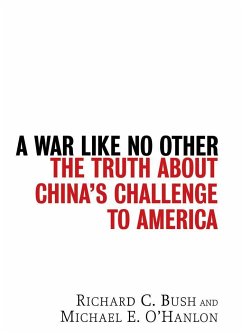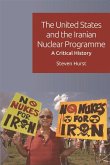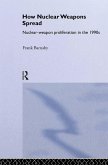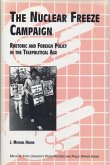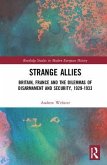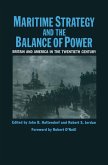"Nobody approaches the objectivity and precision of Bush and O'Hanlon when it comes to analysis of the military and political dimensions of the Taiwan issue. This is one challenge that U.S. policymakers and military strategists cannot afford to get wrong, and scholars cannot afford to ignore." - Michael Green, former Senior Director for Asian Affairs National Security Council The Showdown to Come In 1995, during a heated discussion about that year's Taiwan crisis, a Chinese general remarked to a U.S. diplomat, "In the end, you care more about Los Angeles than you do about Taipei." In a single sentence, he both questioned the level of America's commitment to a longtime ally and threatened massive, perhaps nuclear, retaliation should the United States intervene militarily on Taiwan's behalf. In the end, President Clinton sent two aircraft carriers to the region, and China ceased its military exercises in the Taiwan Strait. A decade later, however, China is much stronger, both economically and militarily, and it holds a significant amount of America's national debt. If another Taiwan crisis should occur-as it almost certainly will-would China back down? In A War Like No Other, you'll discover how little it would take to transform the close cooperation and friendly rivalry between the United States and the People's Republic of China into the first-ever shooting war between two nuclear powers. This chilling look into one possible future offers thoughtful advice to both governments on how to reduce the chances of such a nightmare actually occurring. Two Brookings Institution scholars offer specific prescriptions on how the two nations can improve communications, especially in times of crisis; avoid risky behavior, even when provoked; and, above all, remember which buttons not to push. Washington has split between those who think we will eventually go to war with China (mostly conservatives) and those who find these alarums unconvincing (mostly centrists). They've even developed pejoratives for each camp: Panda Sluggers versus Panda Huggers. A War Like No Other argues against both, warning that America and China are closer to war than most people realize, in large part because China and Taiwan could blunder into a conflict that neither side wants. The road from slightest provocation to economically disastrous superpower standoff is a short one. National security expert Michael O'Hanlon has developed a sterling reputation for clear-eyed analysis, especially for his early and ongoing prescience and accuracy concerning America's involvement in Iraq. A War Like No Other teams him with noted China scholar Richard Bush to assess the threat that keeps them both up at night: the chilling of relations between the United States and China from simply wary to detrimentally antagonistic. Two decades from now, China will likely be the undisputed number-two global power and, if its phenomenal growth continues, it may well achieve superpower status before the end of the century. Since it began to explore and develop its industrial potential in the early 1980s, it has become one of America's largest trading partners, dependable debt holders, and sources of low-priced goods. It may also become America's most powerful diplomatic, economic, and military rival. How will this complex relationship play out on the world stage? In A War Like No Other, Brookings scholars Richard Bush and Michael O'Hanlon delve into the dangerous consequences of this new dynamic. Other commentators fear the results of recent alarming conflicts over trade, monetary policy, relations with Iran and North Korea, competition for scarce oil, and even China's growing economic and military strength. Bush and O'Hanlon deftly sort through the issues, putting them in context. Each alone is hardly a credible cause for war. However, each of these could contribute to a more poisonous atmosphere than ever in which to confront the only issue that could really spark conflict: Taiwan. The nebulous status of Taiwan has sparked crises in the past and will continue indefinitely as the most likely source of conflict between China and the United States. Filled with revealing accounts of past crises, insightful analyses of the ways in which the United States and China often fail to communicate, and controversial prescriptions for managing the inevitable conflicts between a reigning superpower and a rising contender, A War Like No Other is must reading for anyone interested in U.S./China relations, diplomacy, foreign policy, and the fine line between competition and conflict. "Nobody approaches the objectivity and precision of Bush and O'Hanlon when it comes to analysis of the military and political dimensions of the Taiwan issue. This is one challenge that U.S. policymakers and military strategists cannot afford to get wrong, and scholars cannot afford to ignore." - Michael Green, former Senior Director for Asian Affairs National Security Council The Showdown to Come In 1995, during a heated discussion about that year's Taiwan crisis, a Chinese general remarked to a U.S. diplomat, "In the end, you care more about Los Angeles than you do about Taipei." In a single sentence, he both questioned the level of America's commitment to a longtime ally and threatened massive, perhaps nuclear, retaliation should the United States intervene militarily on Taiwan's behalf. In the end, President Clinton sent two aircraft carriers to the region, and China ceased its military exercises in the Taiwan Strait. A decade later, however, China is much stronger, both economically and militarily, and it holds a significant amount of America's national debt. If another Taiwan crisis should occur-as it almost certainly will-would China back down? In A War Like No Other, you'll discover how little it would take to transform the close cooperation and friendly rivalry between the United States and the People's Republic of China into the first-ever shooting war between two nuclear powers. This chilling look into one possible future offers thoughtful advice to both governments on how to reduce the chances of such a nightmare actually occurring. Two Brookings Institution scholars offer specific prescriptions on how the two nations can improve communications, especially in times of crisis; avoid risky behavior, even when provoked; and, above all, remember which buttons not to push.
Hinweis: Dieser Artikel kann nur an eine deutsche Lieferadresse ausgeliefert werden.
Hinweis: Dieser Artikel kann nur an eine deutsche Lieferadresse ausgeliefert werden.

